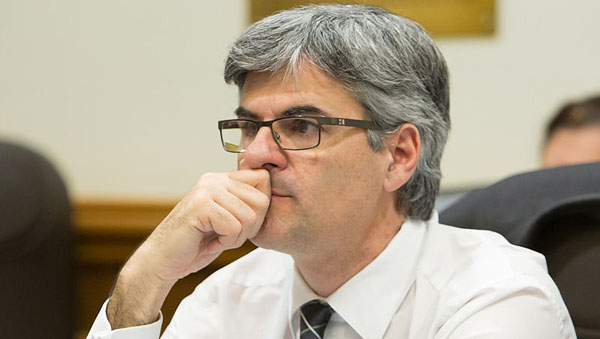By Yvonne Sam
Contributing Columnist
 Well, here we are, right smack bang into another New Year and the start of another decade, coinciding with the Quebec government’s desire to launch a new identification system for its citizens to use, in accessing public services.
Well, here we are, right smack bang into another New Year and the start of another decade, coinciding with the Quebec government’s desire to launch a new identification system for its citizens to use, in accessing public services.
In February 2018, Canada joined the Digital 7, a network of countries that aim to harness digital technology for the benefit of citizens and the broader digital economy. As of November 2018, the Digital 7 became known as the Digital 9.
On December 10, Eric Caire, the Minister responsible for government digital transformation, disclosed that Quebec has disseminated a public notice to explore if a private company is interested in undertaking such a project.
The basic concept is to create an identity that would be used for log-ins to government services, and create digital identification cards on smart-phones to replace driver’s licenses and plastic Medicare cards.
According to Minister Caire, utilization of the social insurance number as a means of identification for services, is archaic and outdated, further implying that safer and more current methods of creating a real identity must be found.
 Despite the fact that Quebec has been working on the idea for a while, the recent data thefts at Mouvement Desjardins and Capital One, which exposed serious security glitches in protecting personal, private information, acted as a further incentive to commence working on a new plan. It was later discovered that the breach at Desjardins had extended to an additional 1.8 million Master Card and Visa credit cards.
Despite the fact that Quebec has been working on the idea for a while, the recent data thefts at Mouvement Desjardins and Capital One, which exposed serious security glitches in protecting personal, private information, acted as a further incentive to commence working on a new plan. It was later discovered that the breach at Desjardins had extended to an additional 1.8 million Master Card and Visa credit cards.
“I think today, we need to be very, very aware of the value of data. When I say data is the petroleum of the 21st century it is exactly that. It is coveted. Attacks on data are a huge threat, and we must address it in future cybersecurity policies. Look at recent events: the security breach emerged from the inside,” Caire said.
The path to be navigated is not unfamiliar to Quebec, for in 2017 it tried to launch Project Acces UniQC. The CAQ government immediately dismissed the project on assuming office, following the emergence of reports of escalating costs and internal problems with the developers. Currently the project has been handed over to the Centre Québécois d’excellence numerique (CQEN), an agency recently created by the Minister himself.
Also being looked at is biometric identification – using photo, voice or image as a fingerprint to prevent identity theft, but according to Minister Caire, there are other even safer systems. He added, conclusively, that ideally an individual should be able to show a certain level of information — such as a driver’s licence — on a smart-phone and be able also to hide other data, when not required.
Even in the face of such a trend-setting initiative, cybersecurity experts are somewhat divided.
The former president of the Montreal security company GoSecure, Pascal Fortin, said that using biometric data can be an Achilles heel, in terms of cybersecurity. He opined that having biometric data stolen or compromised could have very serious consequences for one’s entire life.
Because the two documents generally considered the most credible as identification — the social insurance number and the passport — are both under federal jurisdiction, he would like to see Ottawa get involved.
The Minister is hoping to have a working plan to present to the Cabinet early in the new year, and, conceivably, put in motion the new identity system by the end of 2021.
Ironically, the Minister has omitted to state the financial cost of such a move, on either the government or the taxpayers’ part. However, according to cybersecurity experts, the potential financial benefits to a Canadian digital identity system could be millions of dollars
Yvonne Sam, a retired Head Nurse and Secondary School Teacher, is Vice-president of the Guyana Cultural Association of Montreal. A regular columnist for over two decades with the Montreal Community Contact, her insightful and incursive articles on topics ranging from politics, human rights and immigration, to education and parenting have also appeared in the Huffington Post, Montreal Gazette, XPressbogg and Guyanese OnLine. She is also the recipient of the Governor General of Canada Caring Canadian Citizen Award.
 Pride News Canada's Leader In African Canadian & Caribbean News, Views & Lifestyle
Pride News Canada's Leader In African Canadian & Caribbean News, Views & Lifestyle





